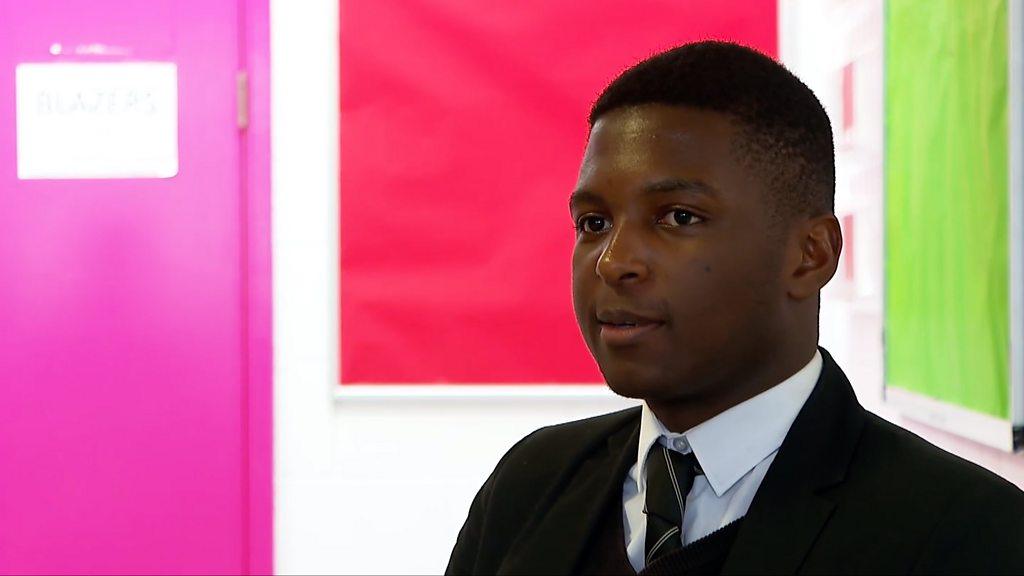Racism: Schools accused of ignoring or denying problems
- Published
"There were comments about how dark my skin is"
Schools in Wales are "ignoring or denying racism," according to a UK equality charity.
Race Equality First said there had been a steady rise in reported cases and schools "very rarely take action".
Rapper Duke Al said he faced a lot of "blind racism" at school and was often the subject of racial jokes.
The Welsh government said it was committed to building an anti-racist Wales, external by 2030, including an anti-racist education system.
Speaking to BBC Wales Duke Al said he had an "amazing" group of friends but as one of the few ethnic minority pupils, he remembers a lot of good-natured teasing.
"It did get a bit wearing...but I never really said anything because I thought that is just the way life is," said the spoken word poet from Dinas Powys, Vale of Glamorgan.
"It wasn't until I got older I realised I actually put up with quite a bit of... racism," adding the murder of George Floyd and the rise of the Black Lives Matter movement made him reflect on his experiences.
The 28-year-old said looking back he now knows he faced 'blind racism' where people made offensive or unacceptable comments not meant to be harmful.
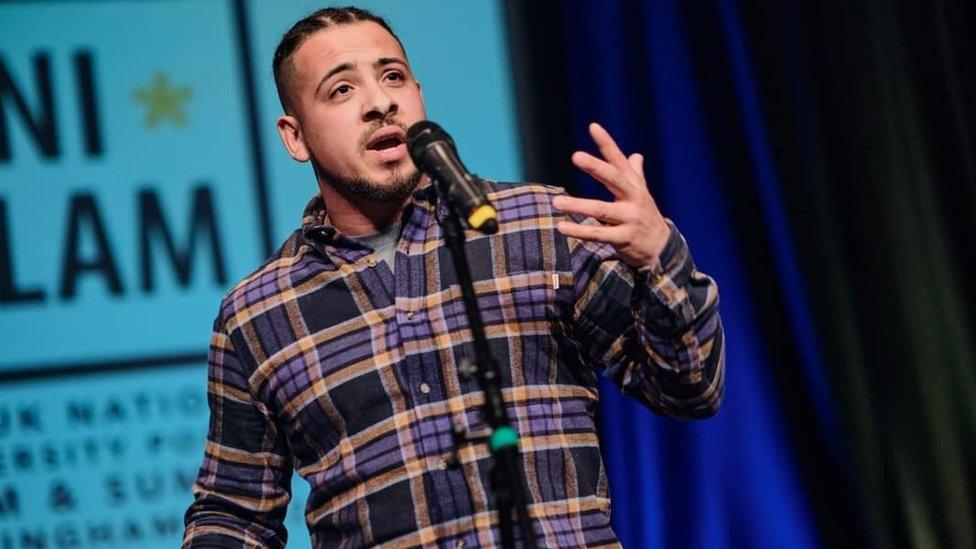
Duke Al wants his poetry to reach people experiencing racism and educate those who do not understand they are being racist
"I want to be a voice for young people basically to say it's okay to stand up for yourself and say actually, you know, you've probably gone too far there... this does wear me down."
He said he did face malicious racism during sports matches, including offensive racial slurs, but was reluctant to report the incidents.
Race Equality First said reported cases of racist bullying in schools, colleges, and universities, were on the increase, from 13 cases in 2019 to 17 in 2020, then up to 19 in 2021, and reaching 21 last year.
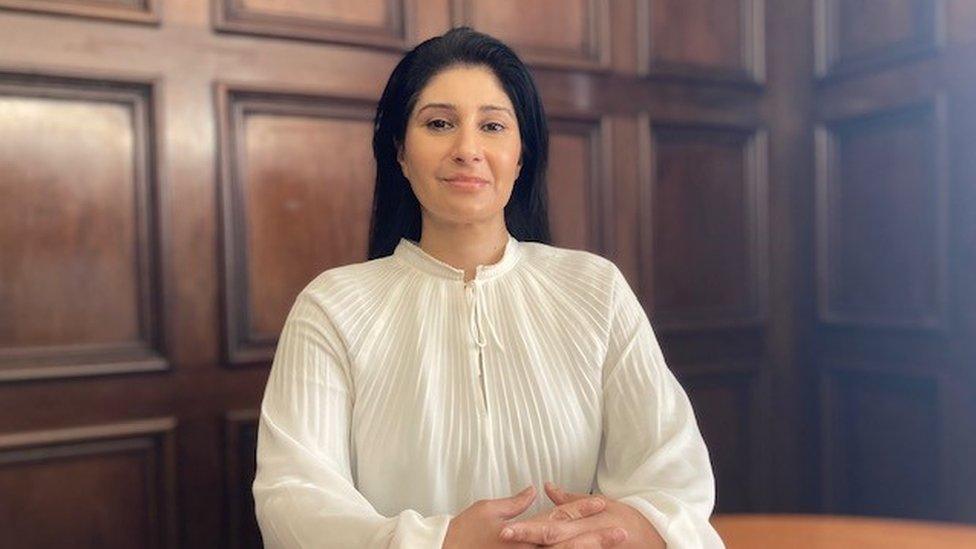
Aliya Mohammed said some schools were in "denial" about regular incidents of racially motivated bullying
The charity's chief executive, Aliya Mohammed said the incidents ranged from physical violence to name-calling and subtle prejudice from teachers.
"Often we see institutional racism embedded in a school's culture and we see ignorance and we see complete denial that racism has taken place," she added.
She said official figures may not show the whole story if some incidents were not recorded by schools worried about their rankings.
"Tackling racism in schools is no longer just about providing anti-racism training for teachers... school teachers and heads need to ensure students are held accountable," she said.
Raheem's mother Shantal said he was "so tired of being picked on every day."
Her comments come after Raheem Bailey, 11, lost a finger after reportedly running from bullies, who his mother said were racially and physically abusing him.
Nirushan Sudarsan from Cardiff said throughout his school years he faced microaggressions, including indirect, subtle, or unintentional discrimination.
The 22-year-old said, for example, many pupils and teachers did not learn to pronounce his name properly or stereotyped him because of his south Asian heritage.
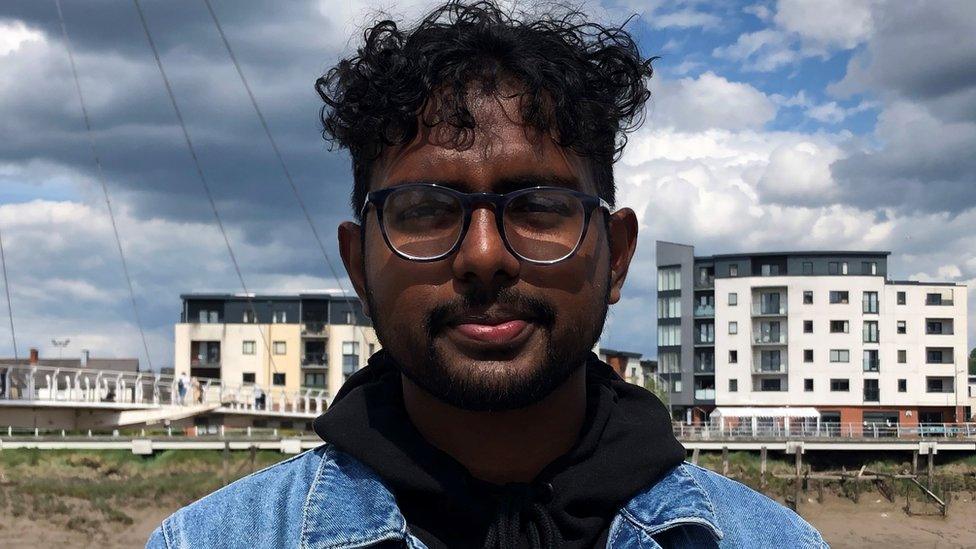
Nirushan Sudarsan says schools need more diverse teachers, something he rarely saw as a pupil
"There were comments around how dark my skin was... throughout my educational experience, and I didn't think that it was a big deal until I got a bit older and understood how racism affects me and my identity."
Now a law and politics student at Cardiff University, he said microaggressions and systemic racism needed to be acknowledged as a real problem, with more training for teachers and mechanisms put in place so that if a pupil reports an incident, they can be confident it will be dealt with properly.
"You want school to be a welcoming environment... you go there to learn and make friends and develop relationships," he said.
"But if... these things are said about you, you start to question yourself and your belonging."
The Welsh government said it "expects allegations and incidents of racism and racial harassment to be fully investigated by schools and appropriate action taken".
A spokesperson said the new curriculum will include mandatory teaching of Black, Asian and Minority Ethnic histories and experiences.

YOU SHALL GO TO THE BALL: Will Jasleen be able to pass herself off as a princess?
THE ASIAN WELSH: Meet the new generation of home-grown Indian medics

- Published7 June 2022
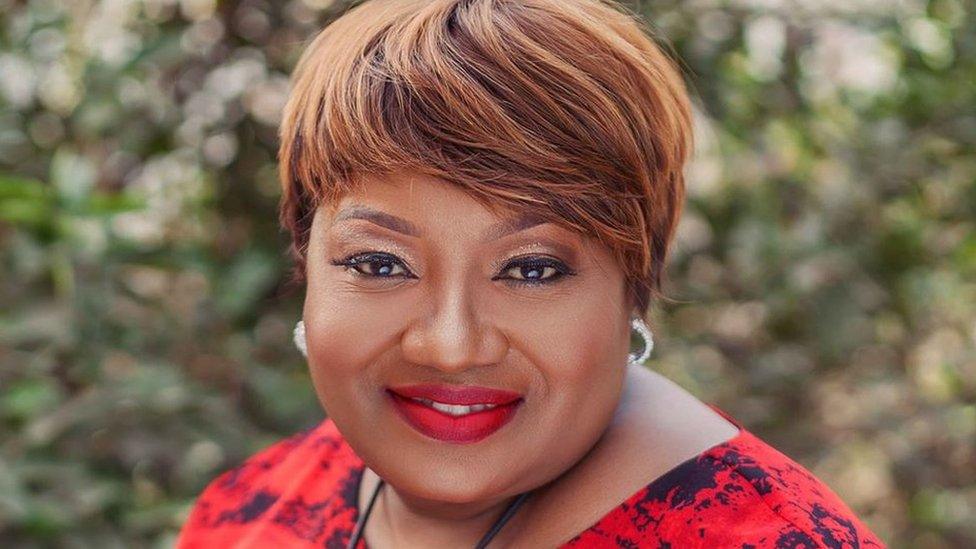
- Published24 May 2022
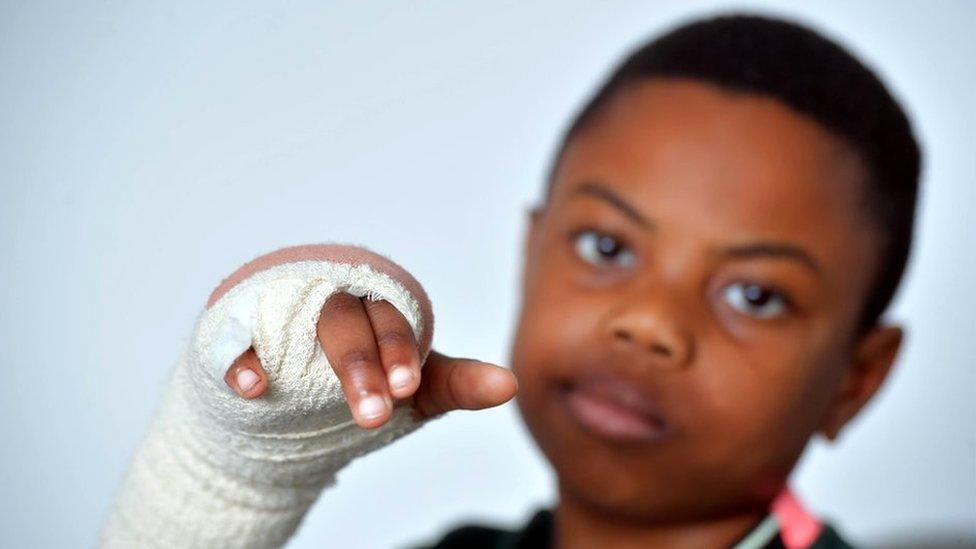
- Published21 September 2021
